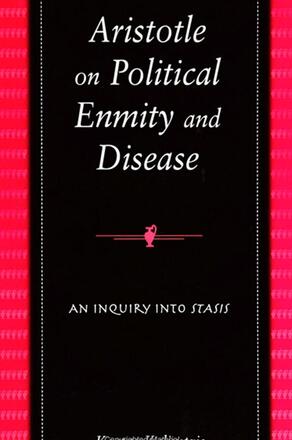
Aristotle on Political Enmity and Disease
An Inquiry into Stasis
Alternative formats available from:
Explores Aristotle's theory of the causes that give rise to stasis ('civic disorder'), and provides an original and systematic account of his understanding of political justice and friendship.
Description
This book explores Aristotle's theory of stasis, a word usually translated to mean "revolution," "civic disorder," or "sedition. " It examines Aristotle's writings on stasis, especially Book 5 of the Politics, within the tradition established by ancient Greek poets, medical writers, philosophers, and orators, who held that the root sense of stasis was in fact nosos, or "disease. " Aristotle's theory of the causes of stasis is presented in a cohesive manner, as factors that can account for political disease within the entire range of diverse constitutions. Aristotle is shown to have proceeded from the standpoint that the polis had to be cast in a mode of political friendship, what the Greeks called homonoia or "political friendship", and that when other standards for friendship such as wealth or liberty are practiced to an extreme, then the function of the polis may be "arrested. " The telic functions of the polis are replaced by disordered "movements" whose paralyzing effect—as evidenced by transformations in values and language, and the pursuit of private-interest ends—is typical of a dysfunctional condition that often ends in senseless violence and civil war.
Kostas Kalimtzis received his Ph. D. in Philosophy from the University of South Florida.
Reviews
"This is by far the best extended treatment of its subject—Aristotle's understanding of political conflict, or stasis—in English, French, or German. The core chapters are particularly impressive in the way that they root that understanding of political conflict in a systematic and original account of Aristotle's understanding of political justice and friendship. Most accounts of Aristotle's theory of social conflict treat it as a separate, more 'empirical' part of Aristotle's political science. Kalimtzis's account is both more accurate and more interesting. " — Bernard Yack, author of The Problems of a Political Animal: Community, Justice, and Conflict in Aristotelian Political Thought